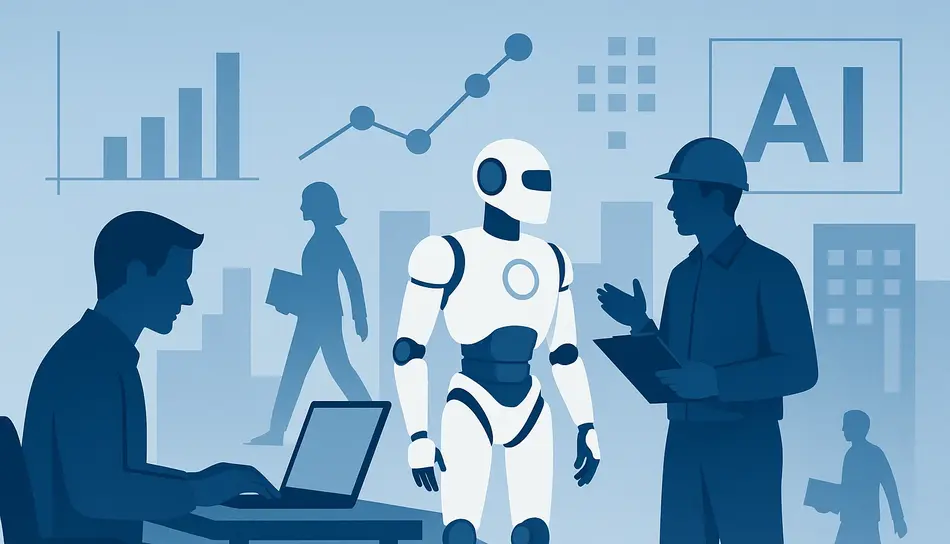Powerful Insights: Microsoft Layoffs and AI Job Displacement
The tech industry is undergoing a seismic shift, and nowhere is this more evident than in the recent Microsoft layoffs. As artificial intelligence (AI) continues to reshape the employment landscape, the phrase “Microsoft layoffs” has become a focal point in discussions about workforce transformation and job displacement. In this comprehensive analysis, we explore the causes, consequences, and future implications of these changes, providing valuable insights for professionals, job seekers, and industry observers alike.
Understanding the Microsoft Layoffs: A New Era for Tech Employment
Microsoft, a global leader in technology, recently announced significant layoffs affecting thousands of employees across various departments. This move, driven by the company’s strategic pivot towards AI and cloud computing, signals a broader trend within the tech sector. According to Bloomberg, these layoffs are part of Microsoft’s efforts to streamline operations and invest heavily in AI-driven solutions. The decision has sent shockwaves through the industry, raising questions about job security and the future of work in tech.
AI Job Displacement: The Double-Edged Sword
Artificial intelligence offers immense potential for innovation and efficiency, but it also poses significant risks to traditional employment models. The Microsoft layoffs highlight how AI-driven automation is replacing roles that were once considered secure. Entry-level positions, in particular, are at heightened risk as companies automate routine tasks and prioritize advanced technical skills. As reported by Forbes, the rapid adoption of AI technologies is forcing workers to adapt or face obsolescence.
Ready to Take the Next Step?
If you’re looking to advance your career or find new opportunities in the evolving tech landscape, post your job with WhatJobs and connect with top talent today — free for 30 days.
Post a Job Free for 30 Days →Tech Industry Changes: Adapting to a New Reality
The impact of Microsoft layoffs extends beyond the company itself, reflecting a broader transformation within the tech industry. Companies are re-evaluating their workforce strategies, investing in upskilling programs, and seeking talent with expertise in AI, machine learning, and data science. This shift is creating new opportunities for those willing to adapt, but it also underscores the importance of continuous learning and professional development.
Entry-Level Job Risks: Navigating Uncertainty
Entry-level tech workers are among the most vulnerable to job displacement caused by AI and automation. As companies like Microsoft streamline their operations, roles that require repetitive or easily automated tasks are being phased out. This trend is prompting new graduates and early-career professionals to focus on acquiring in-demand skills and certifications. Explore our Entry-Level Tech Jobs Resource for strategies to future-proof your career.
Workforce Transformation: Preparing for the Future
The Microsoft layoffs and AI job displacement are accelerating a workforce transformation that demands agility, resilience, and a commitment to lifelong learning. Organizations are seeking employees who can adapt to rapidly changing technologies and contribute to innovation. For job seekers, this means embracing new learning opportunities and staying informed about industry trends. Discover more about workforce transformation in our Tech Industry Workforce Transformation News.
FAQ: Microsoft Layoffs and AI Job Displacement
What caused the recent Microsoft layoffs?
The recent Microsoft layoffs were primarily driven by the company’s strategic shift towards AI and cloud computing, resulting in workforce restructuring to align with new business priorities.
How is AI job displacement affecting the tech industry?
AI job displacement is leading to the automation of routine tasks, reducing the need for certain roles while increasing demand for advanced technical skills.
Are entry-level tech jobs at risk due to Microsoft layoffs and AI?
Yes, entry-level tech jobs are particularly vulnerable as companies automate basic functions and prioritize hiring for specialized AI and data science roles.
What can tech workers do to adapt to workforce transformation?
Tech workers should focus on upskilling, continuous learning, and gaining expertise in emerging technologies to remain competitive in the evolving job market.
Live Example: A Tech Worker’s Perspective
Consider the experience of Sarah, a software engineer at Microsoft who was recently affected by the layoffs. Initially hired for her expertise in legacy systems, Sarah found her role increasingly automated by AI-driven tools. Despite her dedication, she was let go as the company restructured its teams to focus on cloud and AI initiatives. Undeterred, Sarah enrolled in online courses to learn machine learning and data analytics. Within months, she secured a new position at a tech startup, leveraging her new skills to drive innovation. Sarah’s journey exemplifies the resilience and adaptability required to thrive in today’s tech industry.




